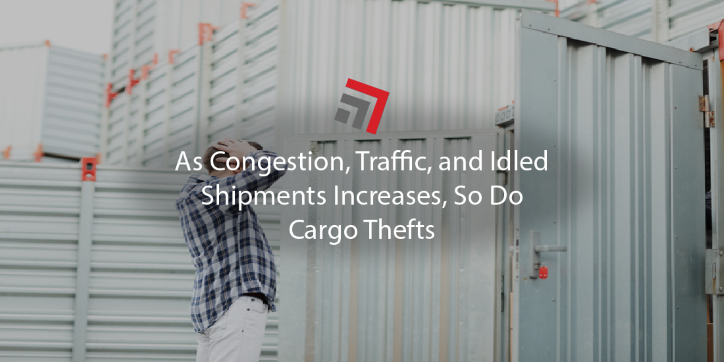The record container congestion at U.S. ports, as well as overwhelmed supply chains, has made conditions more ideal for cargo thefts. As the containers and shipments have been sitting idle for longer than usual, this has created new opportunities for them to be targeted by criminals. The containers are filled with everything from electronics and toys to home appliances and apparel and more.
Recently Union Pacific reported a significant amount of cargo container break-ins as shipments were being transported out of the ports of Los Angeles and Long Beach through downtown LA, according to Freightwaves. JJ Coughlin, an owner of Corporate Security Solutions of Texas told Freightwaves, “Especially right now at places like the Port of Los Angeles, the trains come to the port and they take containers off of the ship and put them on the train, then those containers are sitting for days on end and not moving,” he continues to state that these thefts have most likely occurred on the train once the container was picked up from the ship and had time to sit.
According to Freightwaves, cargo crime in the U.S. generally is a $15 to $30 billion dollar problem. CargoNet reported a total of 359 supply chain theft and fraud incidents across the U.S. and Canada in the third quarter of 2021, a 2% decline compared to the same period last year. Cargo theft was especially bad during 2020 when the pandemic began, with CargoNet reporting 1,502 total theft events last year, compared to 1,106 total theft events in 2019 and 1,181 in 2018, according to Freightwaves.
Scott Cornell, a transportation lead, crime, and theft specialist at Travelers says criminals usually steal what they know they can sell. “If it’s popular or if it’s in high demand or if it’s in shortage, they’re going to go after it because they know they’re going to be able to get rid of it quickly, and get a high dollar amount for it,” he told Freightwaves. Cornell continued to state that the majority of the time they already have a buyer lined up before the theft takes place.
Many cases of cargo crime go unreported because a majority of the time companies don’t know where their freight went missing. “Supply chain backups create more complexities around cargo theft too, when you have more of it sitting in more places. You also create more locations geographically where the thefts occur. You have a harder time pinpointing where you’re going to see it and where you need to protect yourself above all other areas,” Cornell told Freightwaves.
If you have any questions or would like to learn more today, reach out to a team member and we would be happy to discuss further with you!



Recent Comments